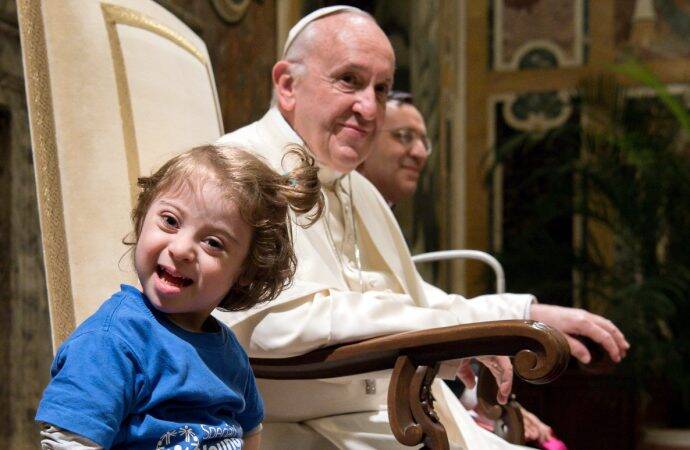Respondents reported a variety of accommodations for people with disabilities in their parishes, while also calling on their communities to do more to support parishioners with special needs.
Most readers said their parishes offered face-to-face confession and comprehensive wheelchair access. About a quarter of respondents said their parishes had special religious education classes. Less common were support groups, telecoil systems and Braille missalettes.
Kris Blackwell of Lisle, Ill., said her parish works to welcome as many people as they can. “The only disability we can’t accommodate at the moment is signing for the deaf,” she wrote.
“Few catechists are trained to catechize children with learning disabilities or physical limitations. This is an issue that should be addressed at a level higher than the parish,” said Judith Maten in Royal Oak, Mich.
Likewise, Patricia McGann of Bethesda, Md., said her parish welcomed people with disabilities. “Our parish school is fully inclusive, welcoming children with Down syndrome, cerebral palsy, autism spectrum disorder and many other learning differences,” she said. “The church is wheelchair accessible, but only two floors of the school are accessible.”
Other readers noted that people with different disabilities are often treated the same way. “Since disabilities covers a wide range of issues, a parish cannot lump them all together and congratulate themselves. Persons with disabilities want to be accommodated and integrated into the life and ministry of the church,” said Holly Clark of
Middleboro, Mass.
For many, parish accessibility remains a challenge. “Our church is barely accessible,” said Jane Shigley of Hamilton, Mont. “It was built in 1896. It has stairs everywhere, and a teeny weeny bathroom. We are raising money so that we can replace it.”
Asked what they would like their parishes to do differently, respondents emphasized that more comprehensive training and policies are necessary. “Few catechists are trained to catechize children with learning disabilities or physical limitations. This is an issue that should be addressed at a level higher than the parish,” said Judith Maten in Royal Oak, Mich.
Diane Smith, in Philadelphia, Pa., agrees that there should be more accountability. “Accessibility is finally being addressed after our 25 years of being members of our parish,” she wrote. “My 23-year-old son uses a wheelchair, and accommodations throughout his life have been taken on by friends, not leadership.”











Signing for the deaf is a good. However, it does little to heal the large percentage of parishioners who are hearing handicapped but do not need or read signs. What we need is first class sound systems and lectors/homilists who are trained in speaking clearly. (News announcers required to take this training.) If we really believe that God is present in both Word and Sacrament, we can do no less.